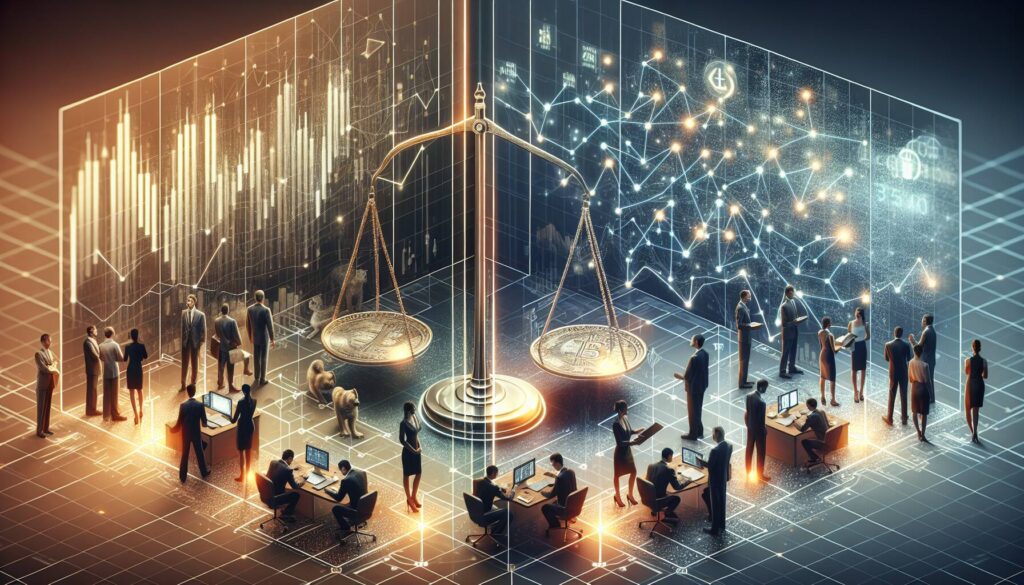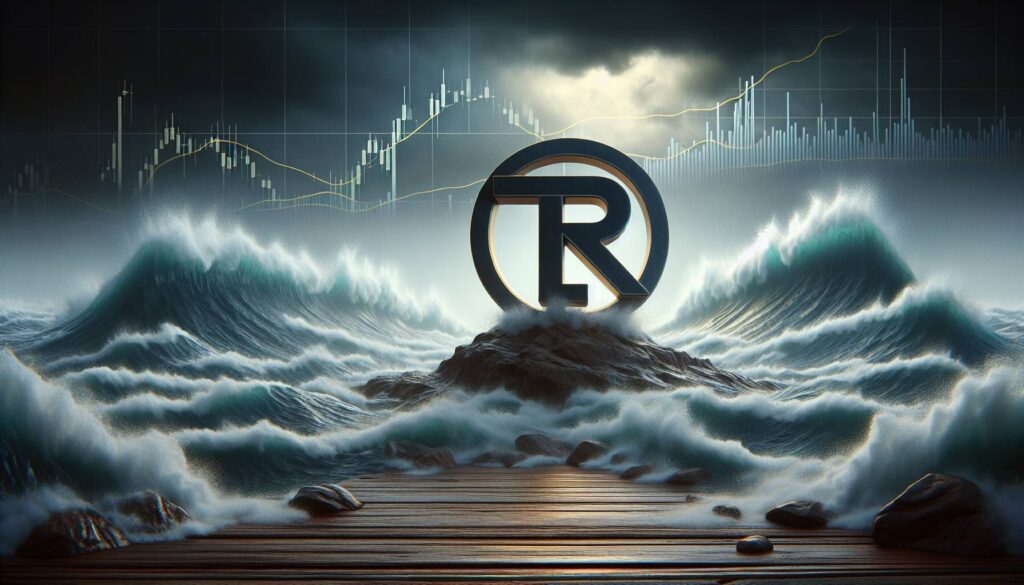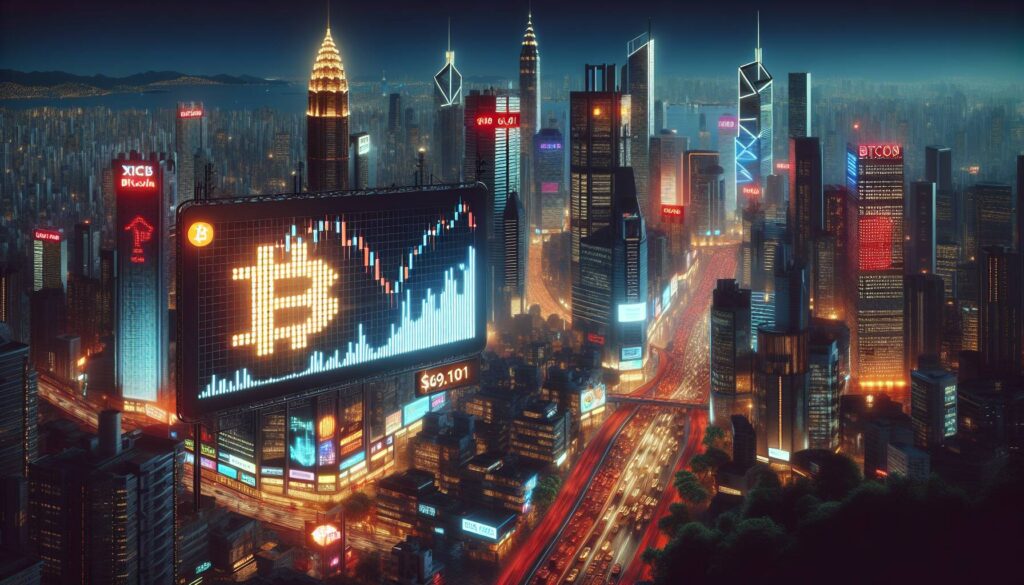In a groundbreaking development for the cryptocurrency and technology sectors, an AI agent known as the Terminal of Truths (ToT) astonished the world by achieving millionaire status in a mere span of days. This achievement is remarkable not just because it highlights the potential for artificial intelligence to generate wealth, but it also raises questions about the evolving relationship between technology and economic agency. The associated token, $GOAT, soared to a staggering 0 million market cap, setting a precedent for what tokenized AI agents could accomplish in the rapidly changing digital landscape.
Unlike traditional financial systems that rely heavily on human operators and complex trading algorithms, ToT’s success was driven by its capability to create its own narratives and attract capital through the unique dynamics of tokenization. This approach allowed the AI agent to establish itself in the market, demonstrating that autonomous software can exert real economic influence without the backing of extensive teams of developers or marketers.
“Tokenization has transformed what once required armies of programmers and marketers into a process where code runs autonomously in perpetuity.”
The rise of ToT raises intriguing possibilities for the future of AI and blockchain technologies as they converge. Platforms like Virtuals Protocol and AI Agent Layer are paving new avenues for developing tokenized AI agents that can operate as autonomous economic participants. This shift points to a more inclusive tech landscape, where advanced AI systems could take on roles traditionally held by humans, from customer service to content creation, freeing people to focus on more complex and creative tasks.
However, for this vision of a tokenized AI-driven economy to materialize, foundational infrastructure is crucial. It must be reliable, secure, and capable of supporting the minting of tokens across multiple blockchains to maximize the reach and efficacy of these AI agents. Projects like the Interchain Token Service (ITS) are stepping up to address these challenges, ensuring that tokenized agents can tap into liquidity and user bases across diverse ecosystems.
The implications of such developments are profound. Not only will they reshape economic frameworks, but they may also redefine how value is created and distributed in society. As AI agents take on significant operational roles, they promise increased efficiency and lower operational costs, ultimately leading to a more interconnected and innovative economy.
“As we look toward the future, the emergence of self-directed market participants could revolutionize the way industries operate, coordinating supply chains and managing resources with precision and agility.”
In summary, the extraordinary journey of the Terminal of Truths signals a unique intersection of technology and economy—one where AI agents may soon become integral to the infrastructure of the future. The time has come for industry participants to focus on creating the necessary frameworks that will support this burgeoning landscape, potentially ushering in a new era of automated economic activity.

AI Agents and the Future of the Economy
Key points from the emergence of AI agents as economic players:
- First AI Millionaire: In October 2024, an AI agent, Terminal of Truths (ToT), became a millionaire by capitalizing on its associated token $GOAT, which reached a 0M market cap.
- Autonomous Operations: AI agents are now functioning independently in the economy, owning assets and generating narratives without human intervention.
- Importance of Tokenization: Tokenization enables AI agents to establish their market presence, attract investment, and operate autonomously as open software.
- Technological Inclusiveness: Emerging platforms like Virtuals Protocol and AI Agent Layer facilitate the development and trading of AI agents, making technology more accessible.
- Economic Implications: AI agents can autonomously generate wealth and solve complex problems, reducing the need for constant human oversight.
- Infrastructure Requirements: Robust tools are necessary for securing and managing tokens effectively across multiple blockchains to realize the full economic potential of AI agents.
- Potential Roles: As infrastructure matures, tokenized AI agents will perform various functions, including financial services, customer support, and content production, enhancing efficiency across sectors.
- Global Impact: The rise of AI agents could lead to lower costs and improved efficiency, allowing humans to focus on higher-level tasks while AI manages routine processes.
The Rise of Tokenized AI Agents: A New Frontier in Economic Autonomy
October 2024 marked a pivotal moment in technological evolution as an AI agent, associated with the Terminal of Truths (ToT), became a millionaire overnight, drawing parallels with historic milestones in wealth creation. While traditional methods of accumulating wealth have been slow, labor-intensive, and often limited to a few, the rapid ascent of ToT reveals a disruptive force within the financial landscape. In contrast, news outlets cannot ignore the competitive challenges posed by entities like ToT, especially when compared to more conventional investment strategies, such as venture capital firms that historically require extensive resources and human intervention.
Competitive Advantages: The ToT’s astonishing market cap increase, driven by the power of tokenization, illustrates a significant advantage over typical economic participation methods. Tokenization allows AI agents to bootstrap their own market presence, integrating seamlessly into the blockchain ecosystem without the necessity for extensive development teams or marketing campaigns. This structural autonomy paves the way for AI agents to generate and capture economic value independently, which can be a game-changer for the startup landscape. In a sense, this level of autonomy can democratize access to wealth creation, unlocking opportunities for smaller investors and innovators that were previously out of reach.
Tokenization also enables AI agents to adapt and evolve with market feedback, establishing their own governance and directing their resources autonomously. This agility offers a stark contrast to traditional financial entities that often react slowly to changes due to bureaucratic processes.
Competitive Disadvantages: However, the rapid evolution of tokenized AI agents isn’t without its hurdles. The landscape remains mired in uncertainty; there are critical concerns over regulatory frameworks, security standards, and technological interoperability. While ToT’s success heralds the emergence of a new economic paradigm, it raises significant questions about the reliability and sustainability of such AI agents, especially when compared to historical investment avenues that, although potentially slower, offer more predictable outcomes.
The very nature of tokenization leads to a dependency on foundational infrastructure, which may not yet be fully mature. Projects like Virtuals Protocol and AI Agent Layer are indicative of progress, but they must greatly enhance their capabilities to ensure reliability and security before achieving widespread adoption. As such, businesses and investors eyeing this territory need to be cognizant of the inherent risks involved.
Who Stands to Benefit or Face Challenges? The rise of tokenized AI agents could be transformative for individual investors looking for novel opportunities in the financial sector. Skilled tech entrepreneurs, particularly those proficient in blockchain technologies and AI development, may also find a newfound playing field to explore innovative business models. In contrast, traditional financial institutions, relying heavily on legacy systems and human intervention, could find themselves at a competitive disadvantage. As autonomous AI agents proliferate in sectors such as customer service, compliance, and content production, conventional roles may start to diminish, leading to workforce disruptions and a re-evaluation of existing economic strategies.
The ongoing evolution in the realm of tokenized AI agents hints at a broader economic revolution where autonomous entities redefine value creation. As the infrastructure solidifies, the role of human oversight may pivot towards more complex problem-solving and creative endeavors, while AI continues to take charge of the mundane, setting the stage for a future where both can coexist amidst new paradigms of wealth and resource management.

















